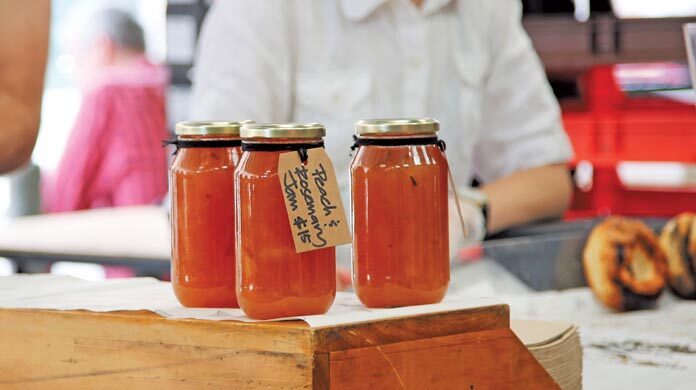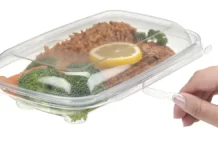
Article contributed by Detra Denay Davis, The Foodpreneur Institute
Exploding across the county is the cottage food industry. Never heard of it? It’s one of the best-kept secrets in the food industry. Luckily, common everyday cooks are becoming food entrepreneurs and defying the odds.
The purpose of cottage food operations is to manufacture unusual foods. It has nothing to do with restaurants or catering. Novice cooks and bakers can sell nonhazardous products to consumers prepared from their home kitchen.
Shocking? Half of the cottage food states place a limitation on the amount of income earned per year. Texas recently raised its Cottage Food income limit from $15000 to $50000. North Carolina, Georgia, Massachusetts, New York, and Tennessee have no sales limit.
Have you ever wanted to sell your specialty sauce, relish, chocolate truffles, or hot pepper jams? Sounds too good to be true. It’s not.
In 2000, Duff Goldman opened his own business called Charm City Cakes. His cake sales began as he worked out of his house in Baltimore, Maryland. He even employed two assistants.
How do you start a cottage food operation? Contact your State Department of Agriculture or State/County Health Department. Complete the application process. Some states have permit fees others don’t. Required training may be necessary along with a food handlers’ certificate. Once products are approved, it’s time to start production. Are you a professional cook and baker seeking a side hustle? The disadvantage can be working in a small home-based kitchen. The advantage, you join an elite group of food producers who want to take their unique product to market.
What can you produce?
Non-hazardous foods approved by your state cottage food agency. The list is endless depending on the state where you live. Get rich quick is not the purpose of cottage food operations. Years ago, the Cajun Chef Paul Prudhomme was notorious for hiding seasoning blends in his pockets. Little did he know some years later they would become his Magic Seasoning Blends®.
The title of Cottage Food Operator is usually associated with those who bake. In recent years, exotic condiments, sauces, vinegar, and dry seasonings have joined the cottage food list of products.
Why should this be of interest to chefs and cooks? Food is about flavor. And if you’re creative enough to capture a unique flavor blend, it could direct you down a different path. Chef Keith Lorren’s created a luxury line of gourmet spice blends. These were more flavorful than traditional brands and called the Spice King Collection.
Chefs love what they do, and each chef has his/her own secret flavor booster. Would you want to sell your flavor packets?
Few folks are familiar with the Cottage Food Industry. You could say it is a gateway to designing and developing a food or flavor concept. In the same way, the city of Louisville, Kentucky is allowing chefs to start popups in abandon housing. Providing chefs with a way to test their restaurant concept.
The major difference, the idea starts in your home kitchen. The product is your product and how far you go with the idea is 100% dependent on how hard you want to work.
So, what’s the catch?
Cottage foods are usually non-hazardous foods. Examples are dry baked goods, bread, cookies, fruit pies, jams, jellies. Plus, preserves, honey, dried herbs, packaged spices, and spice mixes and soup mixes. This is not a get rich quick scheme and not limited to the foods listed.
It is a way to exercise your creative side and take a product to market. You may have never thought of selling anything. Chefs spend their life creating for others. Now the opportunity exists to innovate in a completely different way.
How do you get started in Cottage Foods? Review your state Cottage Food rules and regulations at foodpreneurinstitute.com/cottage-food-law/
The Cottage Food Best Practices include:
- Make your product an outlier.
- Commit to making an exclusive product.
- Manufacture products with “Swag”.
- Think outside the box.
- If the marketplace is oversaturated, stand out like a sore thumb.
- Sell to your niche.
- Identify those folks willing and able to pay the price you’re asking for your product. Hard stop!
- When you’re in a slump throw everything in the pot.
- Avoid mediocrity. Think big, act small. Make every day a productive day. Be bold!
Many cottage food states have local training and workshops. There are informative websites that address the product development journey. Contact the Foodpreneur Institute, with questions about developing a specialty food product. Cottage foods are about setting yourself apart from the status quo.
 Detra Denay Davis is the Founder and CEO of The Foodpreneur Institute (FPI). An Online Resource and Educational Center for Cottage Food Operators. The Institute helps home food processors take their specialty products from kitchen to market. FPI offers industry-specific information via a knowledgebase of resources. Since 2008 Denay has been teaching Food Entrepreneurship for the Wake County Public School Lifelong Learning Program and in Charlotte, North Carolina. Formerly a Cottage Food Operator selling custom pies from her home-based bakery, The Charlotte Pie Authority. Denay can be reached at 919-412-9158 or by email at contact@foodpreneurinstitute.com.
Detra Denay Davis is the Founder and CEO of The Foodpreneur Institute (FPI). An Online Resource and Educational Center for Cottage Food Operators. The Institute helps home food processors take their specialty products from kitchen to market. FPI offers industry-specific information via a knowledgebase of resources. Since 2008 Denay has been teaching Food Entrepreneurship for the Wake County Public School Lifelong Learning Program and in Charlotte, North Carolina. Formerly a Cottage Food Operator selling custom pies from her home-based bakery, The Charlotte Pie Authority. Denay can be reached at 919-412-9158 or by email at contact@foodpreneurinstitute.com.
For more information on Foodpreneur Institute, please visit their website.

























